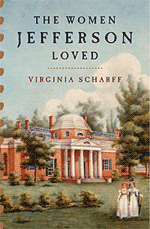I have been reading Jill Lepore’s learned, witty, sensible book, The Whites of Their Eyes: The Tea Party’s Revolution and the Battle over American History. Those of you who teach American history will find it useful (yes, we will all crib stories to try to grab the attention of the guy in the third row who’s looking at a YouTube video of dancing hamsters). But the thing I like most about the book is Lepore’s concept of “historical fundamentalism.” People who claim to want to return to the world of the Founding Fathers, who claim that Washington and Adams and Jefferson walk among us, boiling with rage at the idea that the federal government ought to do something about health care, says Lepore, are historical fundamentalists who willfully ignore the reality of both the past and the present. We should do as the Founding Fathers did, say the historical fundamentalists, with really no idea at all what they did, or even who these guys were.
Of course, anyone who wants to go back to the good old days should give a thought or two to cholera, flogging, and such everyday matters as death in childbirth. Or more narrowly, if you’re just talking about wanting to stick strictly to politics, and to embalming the Constitution as a divinely inspired, unchangeable contract, I confess I am not with you. I am against slavery and for woman suffrage.
So when I ask, “What would Jefferson eat?” I want to make it clear that I am not suggesting that we must eat only as he did. Or that we can. Jefferson was, for example, fond of “tongues and sounds,” delicate bits of Atlantic cod that had spent enough time in salt that they needed to be boiled for twelve hours to make them palatable. For those of you who are imagining something delicious like Spanish bacalao, I’m afraid we have to consider what our species has done to the great fisheries of the North Atlantic. It’s been a couple of centuries since Jefferson sent to Boston for his fancies. You might want your crispy cod croquettes now, but you might not get them much longer.
In the matter of eating, and anything else, we MAY want to follow Jefferson’s lead, or not. I think it’s pretty interesting to know what he ate and desired and said and thought and did. I would like to contemplate the words and deeds of this inquisitive and gifted and complicated (and compromised) man as a springboard to our own invention. It’s a little like knowing all of Jerry Garcia’s guitar riffs, or Charlie Parker’s most famous solo flights, or the songs of the Beatles—none of those fellows were angels either. We could, of course, engage in musical fundamentalism, ignore their excesses and errors, and try to play the brilliant passages note for note, inflection for inflection, distortion for distortion. But that kind of stuff is for tribute bands, not people who live to make their own music.




Great post. I saw you were reading Lepore on Goodreads and wondered how it was. The whole idea of historical fundamentalism is useful. I'm sure every culture has some of it, but perhaps with our strong origin story tradition among the European settlers it is particularly powerful. On the issue of guns, for instance, I always say I have no objection to everyone being handed a musket if they wish. They often fired backward, sideways--any which way but at the target!
ReplyDeleteNot my job (or my inclination) to defend "historical fundamentalists" and "originalists," but to be fair, they would claim that their opposition to the idea of the "living Constitution" doesn't make them defenders of slavery or eliminating the franchise for women. What they would say is that these have been enshrined in the Constitution by the appropriate mechanism -- amendment -- as opposed to by judicial "fiat."
ReplyDelete